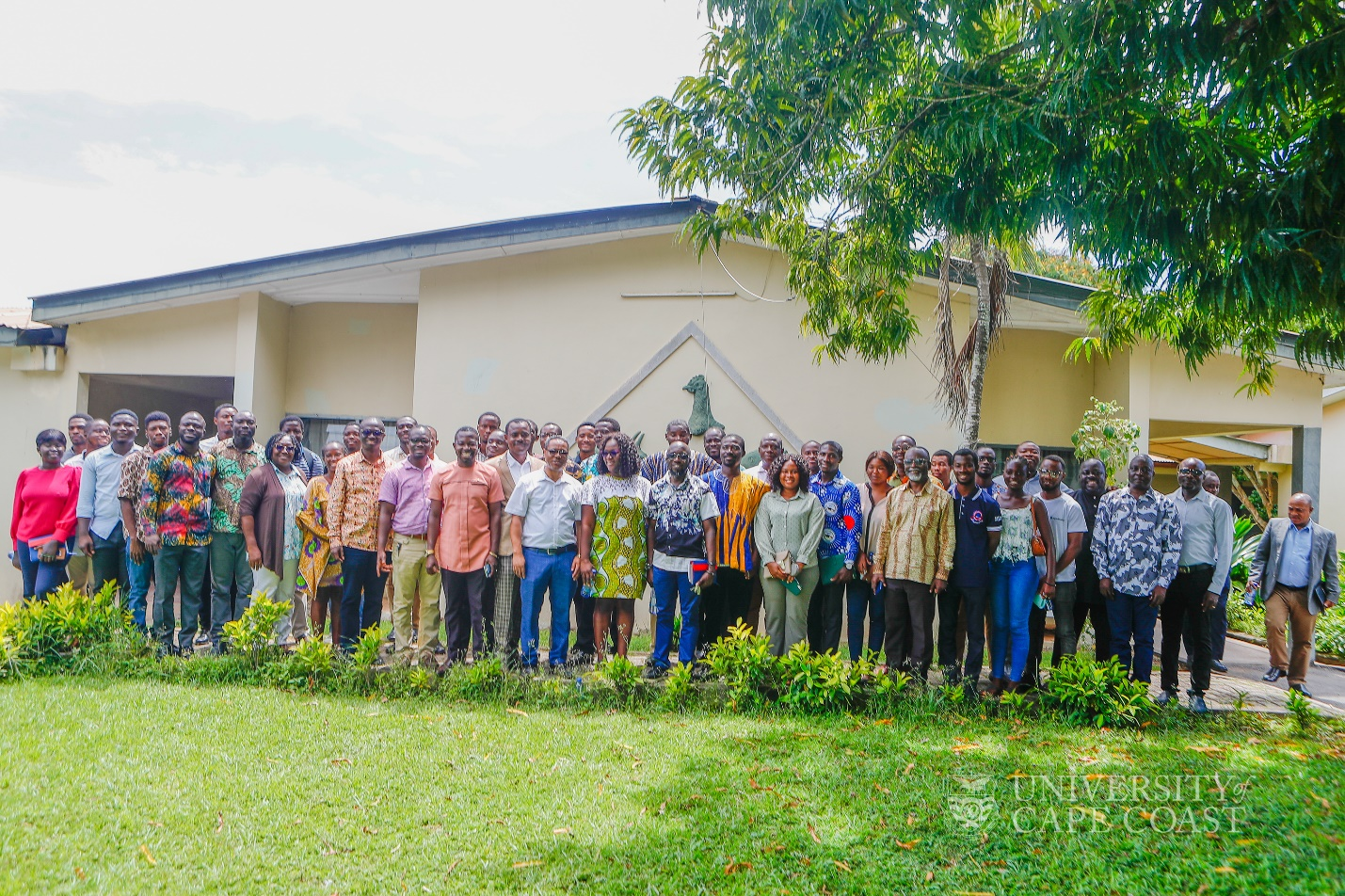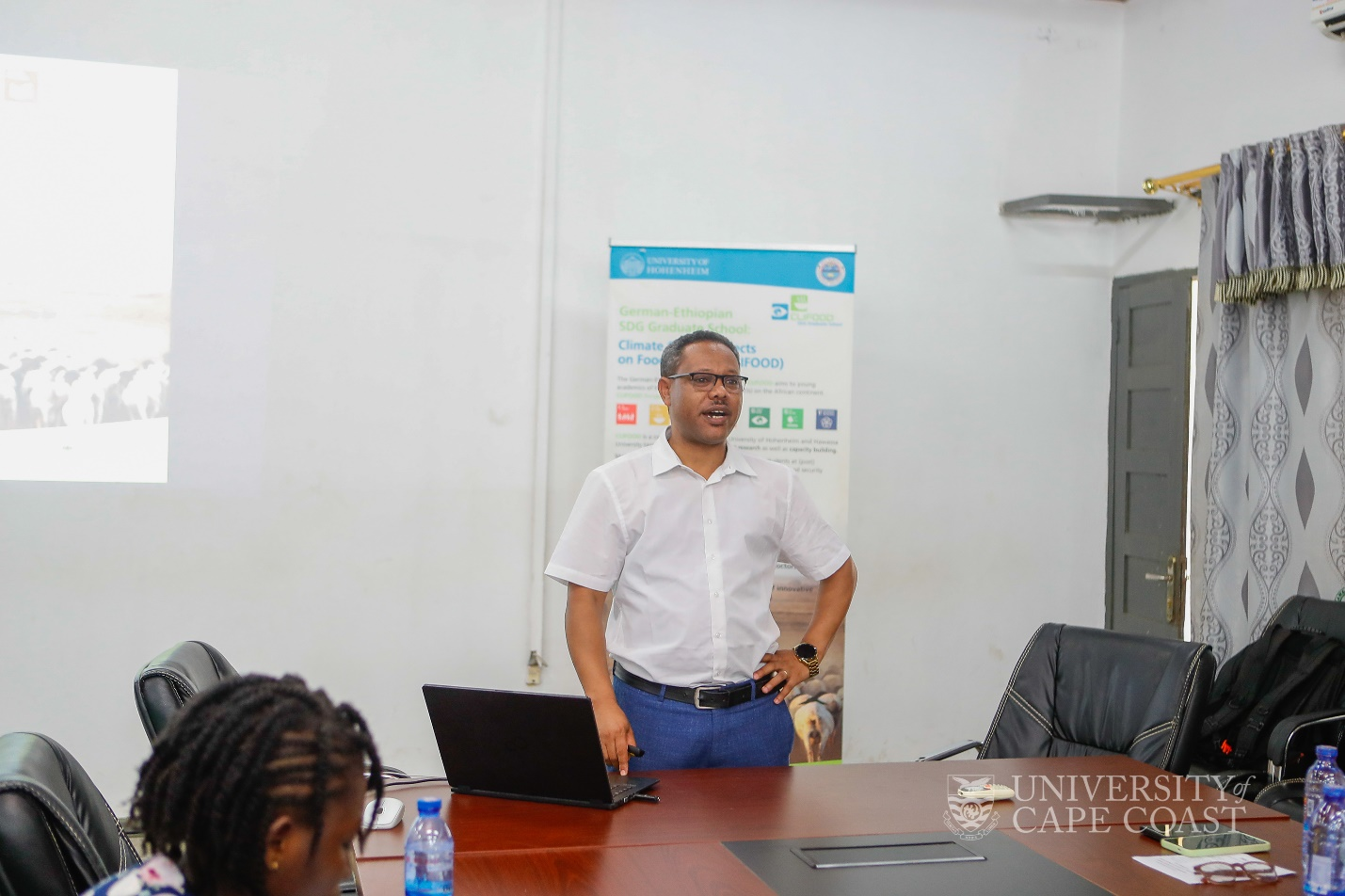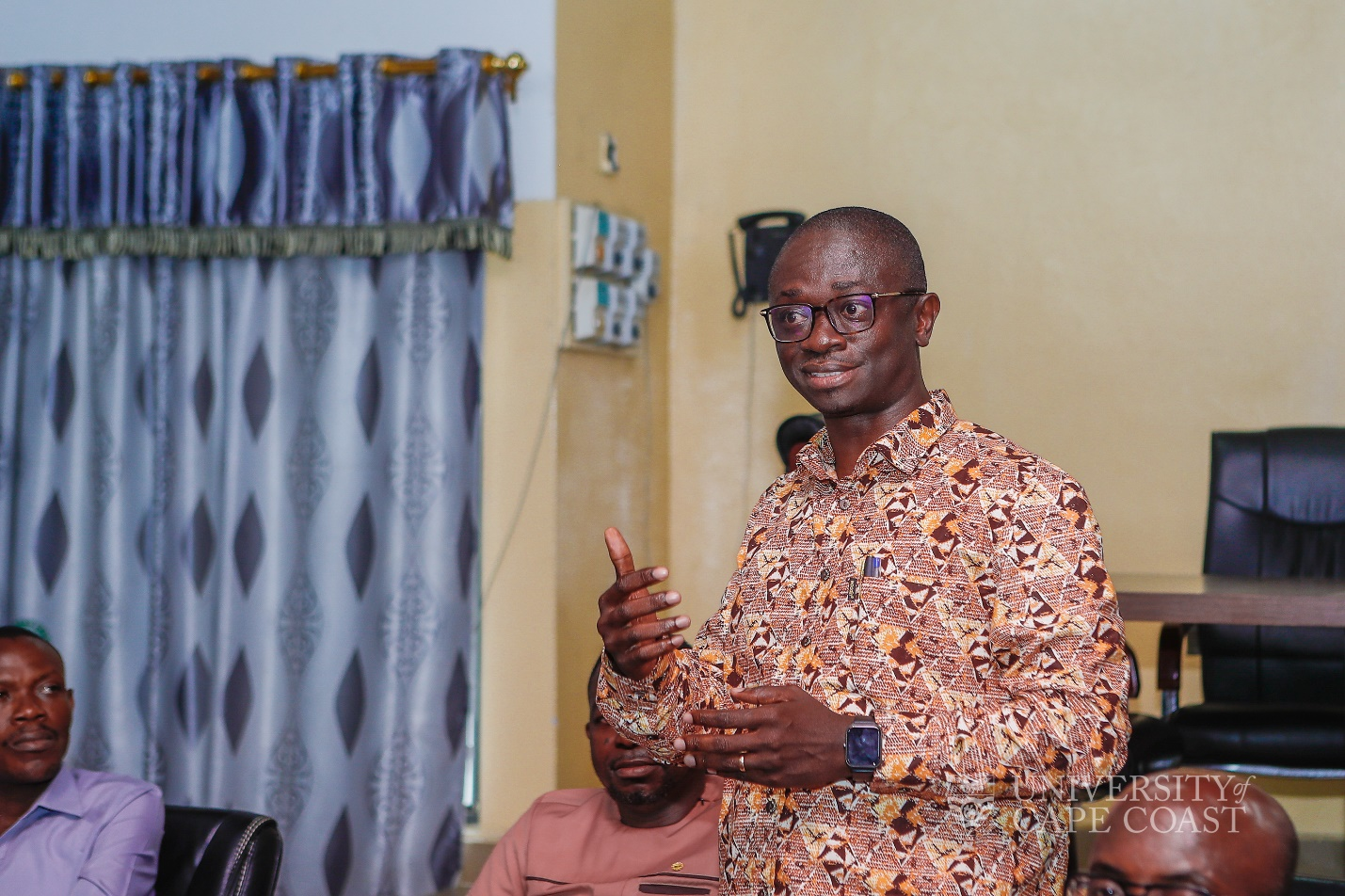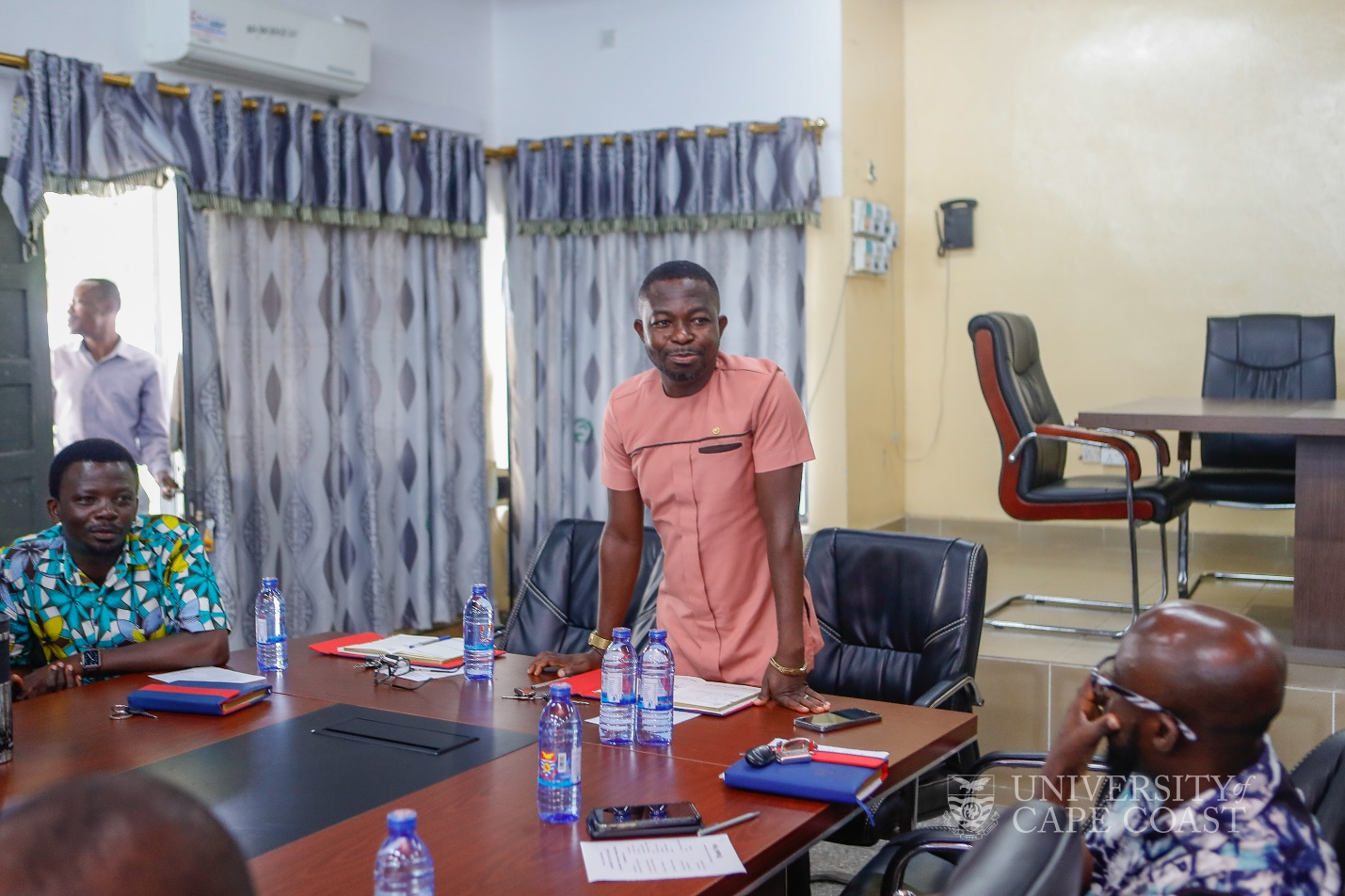An Associate Professor and Head of School of Animal and Range Sciences, College of Agriculture, Hawassa University, Ethiopia. Prof. Sintayehu Yigrem Mersha, had called on African states to substantially invest in education to create a workforce development for sustainable economic development and a better future for their populace.
At a public lecture organised by the College of Agriculture and Natural Sciences, UCC, governments and education stakeholders in Africa must give priority to education in order to produce new breed of African educated elites who would truly show the world that they were capable of managing their affairs.
Prof. Sintayehu Yigrem Mersha delivering a lecture at UCC
Prof. Mersha gave the advice at Research Seminar Series organized by the School of Agriculture of the University of Cape Coast (UCC) on the theme "The Role of Higher Education and Agricultural Research Systems in Addressing SDGs: Lessons from SDG Graduate School in Ethiopia".
Citing an example, he noted that Ethiopians were managing the Ethiopian Airlines and the company and the country were benefiting from the aviation sector because of the training the country was giving to its citizens, adding that the nationals employed at the aviation sector maintain and repair the aircraft themselves.
He noted that a proper investment to education could reward any sector like the Ethopian airline, which is top-ranked airline in Africa.
Buttressing his point with statistics to show how economic development and education sector relates, Prof. Mersha indicated that "African countries are expected to produce at least 10,000 PhDs every year. However, currently, we are producing only about 3,000 PhDs."
He mentioned that India, Indonesia, China and USA were producing 16, 000; 22, 000 50,000, and 70,000 PhD students, respectively, every year, as a result of their investments in education.
He, therefore, implored African governments to deliberately align their educational systems to the Sustainable Development Goals (SDGs).
Some participants in the Seminar
Prof. Mersha was quick to call for adequate resources geared towards educational development for the attainment of the SDGs on the continent.
"Countries that do not finance or invest in educational research will not see results ", he pointed out.
CLIFOOD SDG Graduate School
Prof. Mersha said the Climate Change Effects on Food Security (CLIFOOD), who is coordinated by him in Ethiopia, is aimed at empowering young academics of higher education institutions on the African continent focusing on SDGs 1 (no poverty), 2 (zero hunger), 3 (good health and well-being), 13 (climate action), 15 (life on land) and 17 (partnerships for the goals).
He indicated that scholars should create a niche where research work from academic scholars could be centered on the SDGs.
"Create an avenue for politicians to know what scholars research about ", Prof. Mersha added.
Additionally, he noted that Graduate programs demand financial input, so there was the need for collaborations amongst various institutions for sponsorships on the continent.
Dr. Sabina Appiah-Boateng, of the School of Economics-UCC, added further that some students and staff of UCC had received funding through the DAAD-SDG Graduate School – Performing Sustainability: Cultures and Development.
“This graduate school is a research cooperation between University of Cape Coast (Ghana), University of Maiduguri (Nigeria) and University of Hildesheim (Germany),” she continued.
She stated further that the Graduate School had convened series of write workshops which had been beneficial not only to “our scholarship holders but participants from all the colleges in the university”.
The write workshop model had been adopted by the UCC School of Graduate Studies to facilitate the completion orate of graduate students.
Prof. Bert Boadi-Kusi
The Dean of the Office of International Relations, UCC, Prof. Bert Boadi-Kusi, on behalf of the Vice-Chancellor, Prof. Johnson Nyarko Boampong, announced that the Academic Board of UCC had passed the Regionalisation Policy to champion south-south collaboration with institutions on the African continent.
"There is a strategic effort to build collaborations within the African sub-region", he emphasized.
After the public lecture of Prof Mersha, discussions were held at management level on the possibilities of strengthening the south-south cooperation for future collaborations in higher education and research.
He mentioned that UCC would be glad to establish a Memorandum of Understanding (MoU) with Hawassa University in Ethiopia to promote effective research that could benefit society at large.
On his part, the Vice-Dean of the School of Agriculture, Prof. Julius Kofi Hagan, encouraged the audience, especially Graduate students who were present to take the opportunity to learn and relearn in their academic pursuit.
Prof. Julius Kofi Hagan speaking at the lecture
Source: Documentation and Information Section






